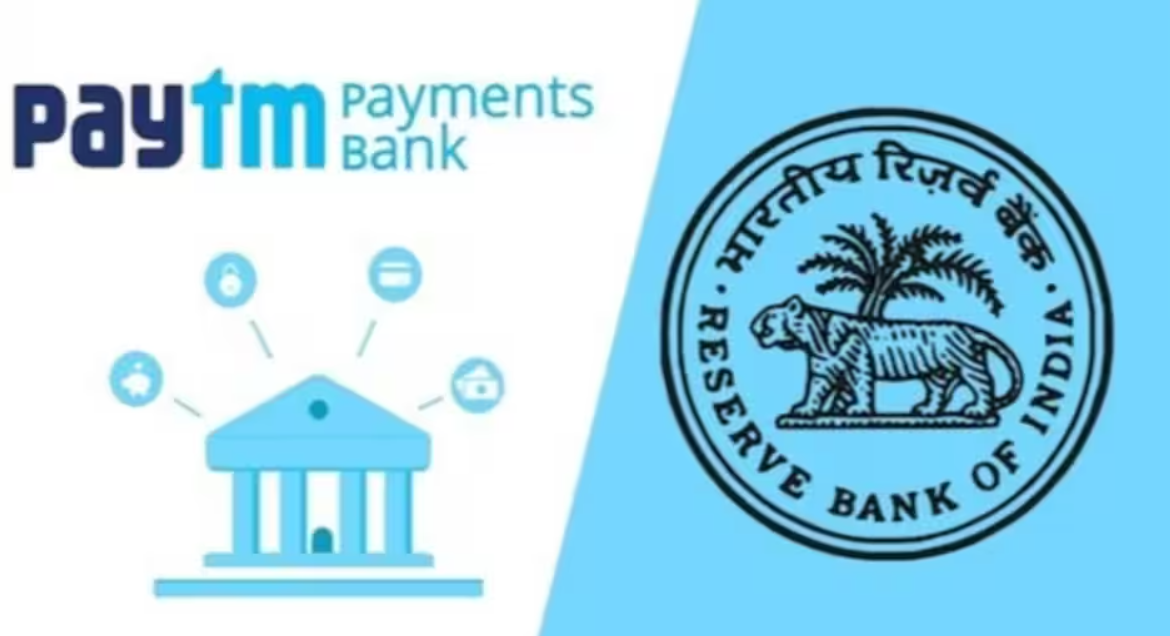RBI’s Regulatory Action Against Paytm Payments Bank: Explained

The Reserve Bank of India (RBI) barred Paytm Payments Bank Ltd (PPBL), a subsidiary of Paytm from obtaining further deposits and top-ups in its accounts or wallets from 29th February 2024.
The recent penalization of PPBL by the Reserve Bank of India (RBI) has raised significant questions about the operations and future prospects of the fintech company.
In a press briefing after the latest Monetary Policy Committee (MPC) meeting, RBI’s Deputy Governor J Swaminathan clarified that the action is against Paytm Payments Bank, not against the Paytm app. This clarification comes as a relief to the millions of users who rely on Paytm for various digital payment services. Similarly, A Paytm spokesperson assured users and merchants that the Paytm app remains fully operational and unaffected by recent developments.
RBI’s Instructions and Implications
The RBI has directed PPBL to cease accepting further deposits, top-ups, or credit transactions into its wallets or accounts from February 29, 2024. This restriction also extends to its prepaid instruments, such as FASTags and National Common Mobility Cards (NCMC) cards. While existing customers can continue to use their balances, PPBL is prohibited from offering banking services like AEPS, IMPS, bill payments, and UPI transactions. Additionally, the bank must terminate nodal accounts of its parent company and Paytm Payments Services by February 29 and settle all pending transactions by March 29. These measures are expected to have significant revenue and profitability implications for Paytm, limiting its ability to retain customers and offer payment and loan products.
Transition Plans for Paytm
In response to the RBI’s actions, Paytm announced plans to collaborate with other banks instead of PPBL. The company aims to expand partnerships with third-party banks for merchant acquiring services. Bhavesh Gupta, President and COO of Paytm, outlined a three-stage transition process, involving finding partner banks, assessing commercial viability, and facilitating account-to-account migrations. However, this transition could lead to higher costs for Paytm, impacting margins and payment business revenues due to reduced wallet revenues and increased involvement of third parties.
Concerns and Regulatory Scrutiny
Several concerns have emerged regarding PPBL’s licensing, governance structure, and related-party transactions. While PPBL does not directly engage in lending activities, it offers credit-dispensing products from third parties, raising questions about regulatory compliance. Moreover, Paytm’s ownership of 49% of PPBL and founder Vijay Shekhar Sharma’s remaining stake have raised governance-related queries. Despite assurances of independence from Paytm’s management and board, concerns persist about the influence of the parent company. Additionally, recent penalties imposed by the RBI for flouting KYC norms and reports of potential money laundering have intensified regulatory scrutiny. Should fresh charges arise, they would be subject to investigation by the Enforcement Directorate (ED).
Manju Agarwal resigns
Paytm Payments Bank independent director Manju Agarwal resigned from the board with effect from 1st February 2024, after the announcement of regulatory actions against Paytm Payments Banks by the RBI.
EPFO Restricts Claims Associated with Paytm Payments Bank
The Employees’ Provident Fund Organization (EPFO) has added to Paytm Payments Bank’s woes by instructing its officers to stop accepting claims related to the bank subsidiary. The circular issued on Thursday by the EPFO, which operates under the Ministry of Labour and Employment, mandates field officers to refrain from processing claims linked to accounts in Paytm Payments Bank starting from 23rd February 2024. Moreover, the circular emphasizes the need for widespread publicity to inform stakeholders about this policy change.
Way Forward
The penalties imposed by the RBI on PPBL signal significant challenges for Paytm and underscore the importance of regulatory compliance and governance in the fintech sector. As Paytm navigates the transition and addresses regulatory concerns, the company faces critical decisions to restore credibility, ensure compliance, and sustain its operations in the competitive Indian financial services sector.







